Navantia UK has announced it is in discussions to acquire Harland & Wolff, the British shipbuilding company, in a deal that could safeguard over 1,000 jobs and integrate four sites into Navantia’s operations.
The proposed acquisition includes Harland & Wolff’s sites in Belfast, Northern Ireland; Appledore, England; and Methil and Arnish, Scotland. Navantia UK stated that the deal aims to strengthen the UK’s industrial capacity in shipbuilding, defence, and offshore wind while supporting a skilled workforce and a resilient domestic supply chain.
Navantia UK currently leads the Fleet Solid Support (FSS) programme, which involves constructing three ships for the Royal Fleet Auxiliary. These vessels are being built across Harland & Wolff’s Belfast and Appledore facilities, as well as Navantia’s Puerto Real site in Spain. The company highlighted that incorporating Harland & Wolff’s facilities would help ensure the timely delivery of the FSS programme.
“This deal represents an opportunity to build on Harland & Wolff’s proud heritage and further strengthen the UK’s sovereign industrial capacity,” the press release stated.
The agreement, which remains subject to regulatory approval, is expected to be completed in January 2025. Navantia UK emphasised its commitment to the UK’s industrial base and its focus on long-term collaboration with the government to deliver strategic capabilities for the Royal Navy.
“The acquisition will strengthen Britain’s industrial capacity whilst preserving more than 1,000 jobs,” the company added.
Navantia, a state-owned company under Spain’s Sociedad Española de Participaciones Industriales (SEPI), brings extensive expertise in shipbuilding and programme management. The company also operates in renewable energy sectors, including offshore wind and green hydrogen, through its Navantia Seanergies brand.
Navantia UK framed the acquisition as a step towards reinforcing UK capabilities. The implications for the country’s shipbuilding industry will depend on the details of the final agreement and its implementation. Regulatory approvals will be a key factor in determining the outcome.
Secretary of State for Northern Ireland Hilary Benn has welcomed Navantia UK’s agreement to purchase all four Harland and Wolff shipyards, including its Belfast facility.
The deal has secured 1,000 UK jobs and ensured the delivery of the Fleet Solid Support Programme to build three Royal Navy ships.
In Belfast, around 500 jobs will be protected by the deal. The deal supports delivery of the UK Government’s Plan for Change, safeguarding national security while raising living standards across the UK with good, skilled, productive jobs which foster economic growth.
The Secretary of State for Northern Ireland said:
“This investment is great news for Belfast, for the Northern Ireland economy and, above all, for Harland and Wolff’s hugely skilled shipbuilding workforce. Harland and Wolff is an iconic, internationally-renowned company with a long and proud history. I am delighted that, with this deal, it will now have a bright future ahead.”




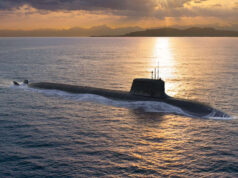

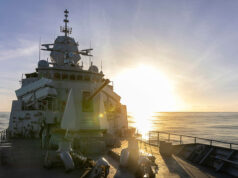

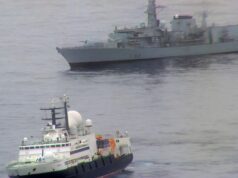
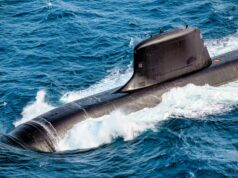
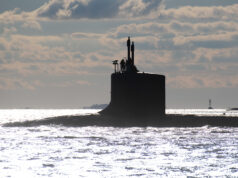
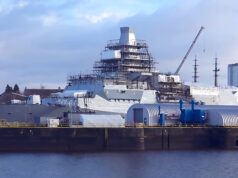
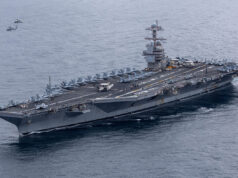

And Navantia are now allowed to hike the price of the contract by £300m and good £100m more than the loan guarantee the H&W needed o stay in business. It looks like math’s isn’t a required qualification to become an MP these days 🙂
I think BREXIT proved that quite comprensivly.
What Brexit? We never left.
Yawn
squire British yards? what sane person would want to do that?
never knew it had been
H&W was a Private Equity scam, £200 million would have just been the beginning.
I don’t think that’s true, but we could have said, yes and for that we want a share of the company, seats on the board, veto rights over dividends, etc. Saying plain no will cost us a lot of money. This is now the best for us financially, as long as we can stomach Spanish governent ownership even though it appears we can’t stomach British government ownership!
Well we’ll never know will we but we do know 300 is more than a loan guarantee for 200. And who says Navantia won’t come back for more it’s not like this government has been much cop at negotiating.
Not going to let the perfect be the enemy of the good here. The shipyards will remain open, that’s good news
Who owns it is a moot point, This safeguards jobs and we need the industrial capacity to get those support ships built.
hoping they will bring a decent performance in production rates
Agreed
By your logic we’d be OK selling our country’s critical defence assets to the Chinese? So crazy. Oh well, reap and sow.
Both the Tides and FSS are BMT designs. The Tides cost £150 m each, the similar sized FSS are £533 m. Is this largely because Korea can build ships so much cheaper? The £1.6b contract does seem expensive.
Given the terms of the contract award, Navantia s purchase of H&W shouldn’t make much difference..
Solid stores is also a lot more complicated than fuel.
Because you are physically transferring explosives around, among other things, the arrangement and safety equipment has to be much more carefully done than with tankers.
Neither are simple but there is a lot more to think about when it comes to solid support ships.
It’s also 15 years of inflation, a larger build order, and most importantly the hulls were built in Korea and they were fitted out later in the UK so the fit out doesn’t appear in the cost.
And also the yard that built them went bust and the Korean Gov stepped in to make sure the contract was honoured.
There were also a good few unadvertised problems with the ships that needed to be rectified. Particularly #1. But as you say the £450m bull costs of the tankers leaves and awful lot out.
As Sailorboy says these are much more complicated that an upspecced commercial tankers. They have to be able to do a bit of everything from missiles, bullets, rounds, frozen food, fresh food, water and maybe some fuel too. So you have loads of systems and areas of the ship that need to function separately as well as the joys of civilians living and working with things that go bang!
The £150m I mentioned was the final cost including the fit out and rectification. In retrospect it looks a bargain, only going to Korea because no UK company entered a bid.
I tried to find details of comparable vessels to try to judge the seemingly high price. Only the USN has numbers of ships in a similar role.
The last USNS Lewis and Clark class cost@$400m in 2016. Even allowing for inflation, the FSS seems expensive. I suppose some of the cost arises from the promised investment in upgrading facilities and workforce skills.
Most nations use AOR types these days. UK & US are the notable exceptions.
4 Jacques Chevalier Class – liquid and solid capability – 31000t full displ. = 1,7B Euros or 425M euros each.
1.6b is no longer tge price there’s 300m more to add.
hoping they will bring a decent performance in production rates from the workforce that has seen their efforts become a national embarrassment
It was worth the Spanish getting into trouble subsidising their yards.
Who would have thought Third World Spain would be doing so well scr£w!ng the UK over?
All we need now is Turnip to give them Gib.
You need to get a passport and do some travelling if you think Spain (ranked 16th globally size of GDP) is “third world”.
Now we have three surface yards with a budget not big enough to keep two going. What a waste.
Yeah this is what I fear, the only way we can keep a third yard open is if the govt makes a radical change of tack from the previous 20+ years and mandates that things like Irish sea and Channel ferries be built in the UK and things like the replacements for the Point class too. Especially if H&W are going to specialise in larger ships. It’s the same with train building, there’s been a glut of orders and newcomers have come to the market, but soon at least one facility will have to close as we find we’ve got fairly modern fleets and orders reduce significantly.
How many British owned Ferry companies operate the Irish Sea and Channel at this point? You can hardly mandate foreign companies buy British ships just to keep a yard open?
Exactly, it would mean a major intervention where perhaps the govt owned the ferries and issued franchises to operate them, so very unlikely to happen. I can’t really see how we can support 3 yards without some extra shipping requirement though.
Again I’m not sure how that works as there are more non British (ie Stena, Irish Ferries, Brittany Ferries) that have nothing to do with U.K. PLC. Are you suggesting a UK government should ban them from docking in the U.K. and then set up a British company to replace them? Force them to buy British hulls just to be allowed dock in British ports?
Worked really well at Ferguson, the uk can’t build ferries. They are too low end for our workforce and you certainly can’t build them in warship yards.
I’m sort of hoping that the British government wake up and smell the coffee and start rebuilding the RN to the required minimum size…even if they don’t I firmly believe that it’s likely the west is going to be in a shooting war with china by the time the decade is out and a core characteristic of the first part of that war will likely be the western pacific and Indian Ocean turning into a naval bloodbath which is going to decimate every navy involved…the later parts of that war will involve massive navel rebuilding programmes.
In the end the best outcome is that they smell the coffee and for the 2040s build a deterrent navy of a total of 20 frigates, 8-10 AAW destroyers, 5-10 patrol and minewarfare mother ships supported by 6 MRSS, 3 solid stores ships And 6 fleet tankers.
For that they will need 2 frigate/patrol ship lines and a large auxiliary line. As they will need 7- 10,000 tons of complex warship commissioned a year and and 20,000+ ton auxiliary every pretty much every year as well…even if they only move the fleet to 6 AAW destroyers, 5 patrol , 18 frigates 4 MRSS, 2 solid stores they will still need the three lines working a a reasonable drum beat..there are plenty of ships to build.
They UK’s already got the 6 tankers, if they keep the Waves. A few more enhanced T31s could be done and you’ve got your fleet of 20+. Add in some SSKNs to free up the Astutes might be handy. And it’s all kind of needed nowish.
So its a good thing that strategic assets are sold to Spain??
I think it’s tragic.
Glad the yards are kept open for H&W so we secure delivery of the FSSS, but I agree it’s stupid to allow other countries to take over our strategically vital shipbuilding.
It is either that or close them down, seems to be the stark choices.
We have to ask why the yards were not making good profits / winning orders before, this takeover.
If Navantia brings in more efficient project management and engineering practices and keeps the yards busy, then surely that is a good thing.
Sold to a fellow NATO ally? Sold to a company that clearly has good shipbuilding expertise and project management knowledge given all the foreign naval orders they win?
I’d rather have them building FSS than some chancers with no experience of efficiently running a shipbuilding yard whose only qualification is having a British passport.
That said, I’d have also leaned on the Spanish to abandon the Franco-German nextgen combat aircraft programme and join ours instead.
At this point, it feels like the Franco-Spanish FCAS after the articles from a French defence article. If you have information regarding the Spanish, it will just end up being the Franco FCAS.
I agree,
I agree, if we are going to have state owned shipyards, they could at least be our state owned ship yards.
Indeed
You would rather the yard closed?
They wouldn’t have been the the only two options would they – so no one is suggesting that.
They are merely highlighting the different approach’s Governments have to what is a strategic asset.
You know a bit like steel , tank building, aircraft design…the things that we were once good at – but have sold to other -state owned or government backed -company’s.
The UK has got very good at state owned public sector businesses…it’s just other nation’s public sector, not own own…because the UK public sector is evil incarnate.
Lizzy, Hawkins, Raleigh and Drake won’t be ‘appy !!!
✌️☮️
Dilatory government performance – it has been known for years that the Royal Navy needs new ships of all types – makes this a bitter pill to swallow. U.K. for sale, all of it.
If the Spanish government can invest in shipbuilding, then why can’t our government, to build ships for our own defence purposes. Makes you wonder who is pulling the strings in London?
Spain wastes a lot of money in subsidies and we don’t. But our country is significantly wealthier because we don’t piss money up the wall subsidising low value add industries like ship building.
Excellent move. More foreign talent. Mikel Arteta is working out well for Arsenal.